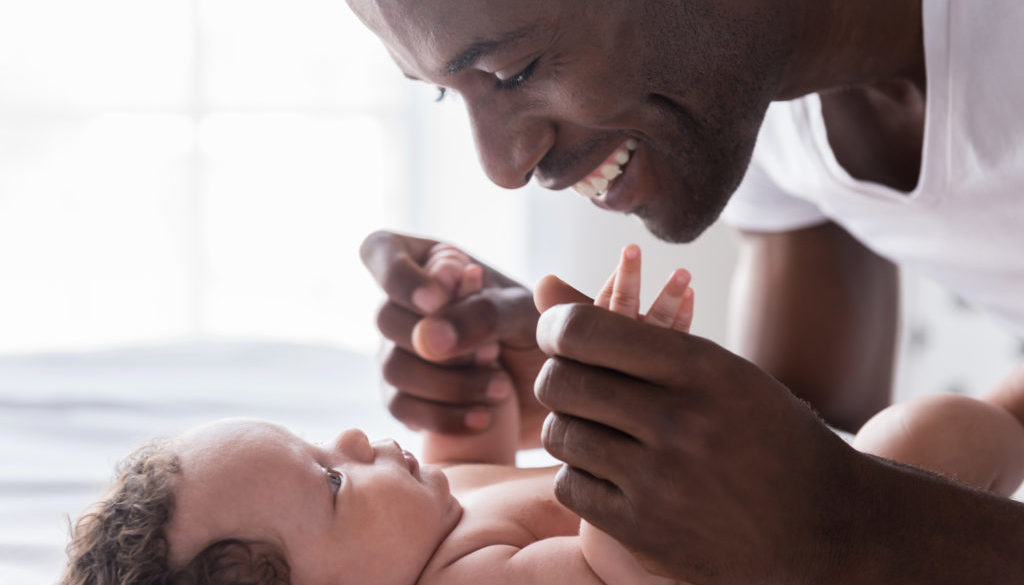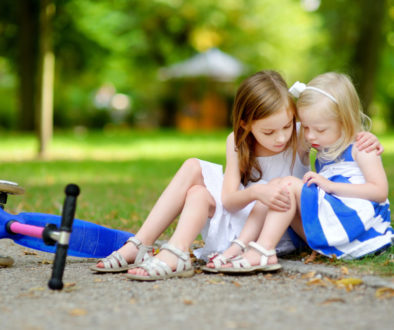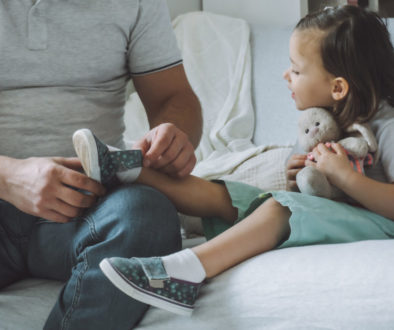Responsive Parenting to Build Secure Attachment

At the heart of secure attachment is a child’s recognition that he has a caregiver who can be counted on to lovingly provide tenderness, comfort, guidance, and protection during the inevitable difficulties of life. If the truth be told, all of us have this need some of the time, no matter what our age.
- Be predictable. Be there for your child. Respond to your baby’s cries and needs. Try to be timely with your response; go to your baby or respond with your voice within 15 seconds. Your child needs to know that you will respond to their needs.
- Be empathetic and sensitive. Ask yourself, “What could my child be needing right now?” or “How might my child be experiencing this?” Don’t assume that your child is experiencing things the same as you – or as you think they should. Go slowly. Watch for your child’s cues.
- Be emotionally available. Your child needs to see you expressing a range of emotions. Show joy when you see your baby smile; talk about sadness when they have tears. Your baby will begin to understand and express emotions, and eventually use words they’ve learned to describe feelings – their own and others.
- Don’t take your child’s behaviors personally. Many caregivers share how hurt they feel when their child pushes them away, runs from them, or refuses to be physically affectionate. As children learn to express themselves with words, they may even say harsh words or hurtful phrases. These aren’t rejections, but expressions of fear, anger, frustration, sadness and other difficult feelings. Your child is still learning to express emotion in a more appropriate way.
- Pair words with actions. Your child needs to associate nurturing actions with you and your voice. It might feel a little silly at first when you are having a one-sided conversation with your baby, but they love your voice and every interaction with them is a chance to support their learning – for both emotional and intellectual development.
- Become child-focused and follow your child’s lead. Children often (and accurately) feel they are the center of the universe. This is an expected part of development, and an important one. It builds inner strength and a sense of self-worth. Parents who are supportive in this phase of development often find their children becoming more independent and self-reliant.
- Make eye contact. Let your baby study your face just as you do theirs. Look in their eyes, this helps builds trust and a secure attachment with you. When talking to your toddler, get down to their level and make eye contact with them.
- Expect whininess, clinging, and tantrums. These behaviors are developmentally normal and expected. Don’t walk away when your child is having a hard time – stay and see it through. The child’s goal is to keep you close. These behaviors will subside when your child learns to express himself better. Respond in a positive manner. Put words to your child’s actions: “you seem really mad right now.” Pulling away can sometimes intensify these behaviors. It is okay, however, to set gentle limits: “I can’t let you kick me, but I’m going to sit right over here so you can come to me when you are ready.” Allow your child to have a big feeling, even if it’s an epic meltdown, let them know it is okay to be mad. This does not mean you give in to tantrums and let the child have his way – except when his “way” is being closer to you. You are letting your child know that you can handle their big emotions and it won’t affect your relationship. You can sit with the emotion and love them through it.
- Create rituals and routines. If your child knows what to expect, he will experience less stress. Routines built into transitions, such as going to bed or going to daycare, increases confidence. Predictable activities also help to provide structure for the expression of emotion. Your child may cry when you leave, but the crying should be related to normal sadness over the temporary separation, not because of a disorganized transition.
- You cannot spoil an Infant! The more secure your child feels now, the more independent she will become later. The more you respond, the fewer behaviors you will see designed only to gain your attention. Your interaction will become richer and deeper.
Be Bigger, Stronger, Wiser, and Kind
Reminder: It’s never too late, responsive parenting is important for a secure, loving relationship. Attachment is a process that starts from birth.





